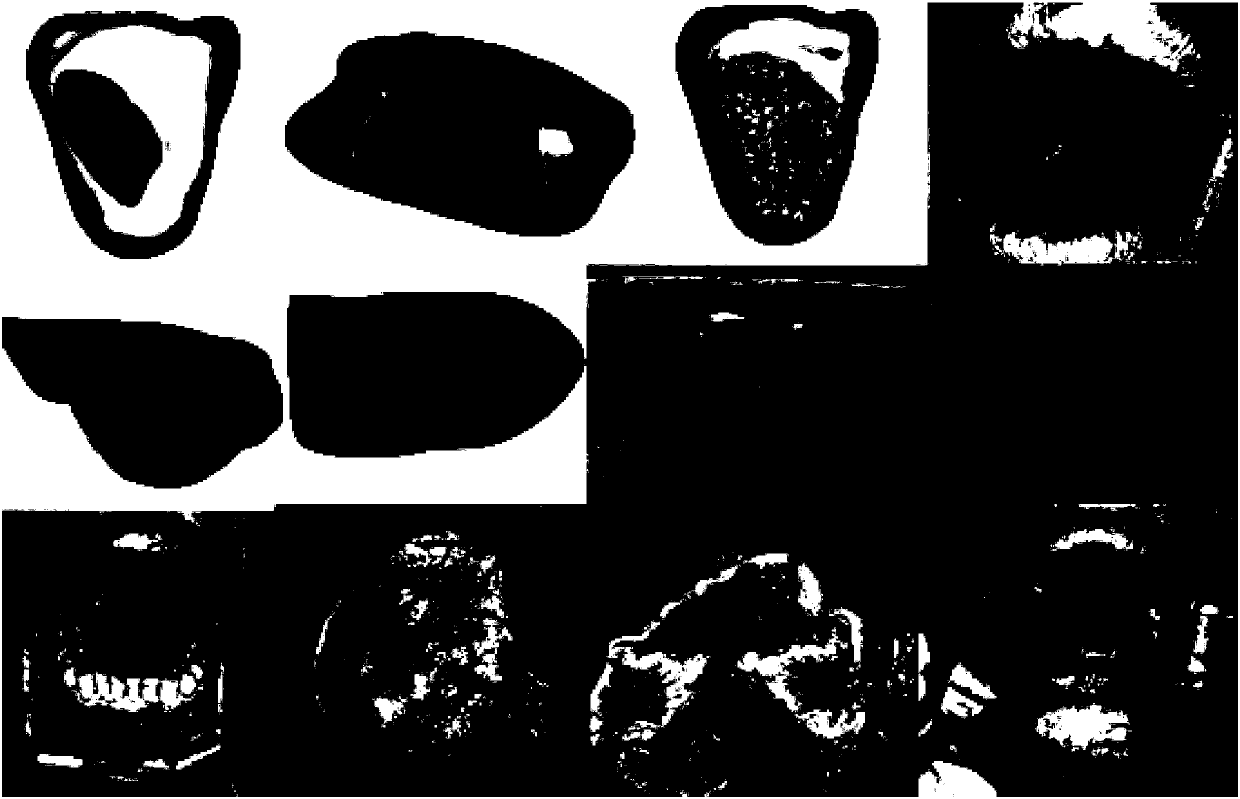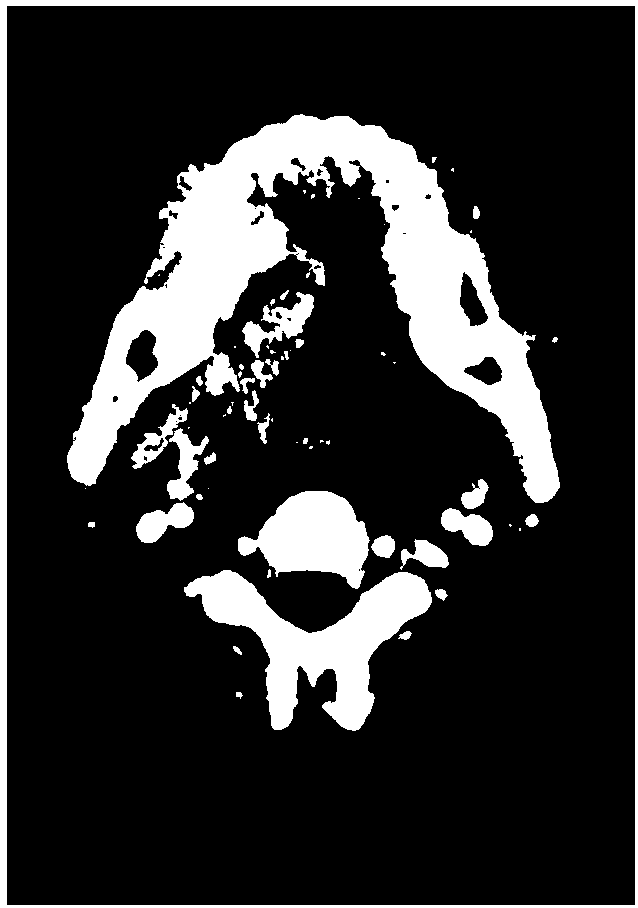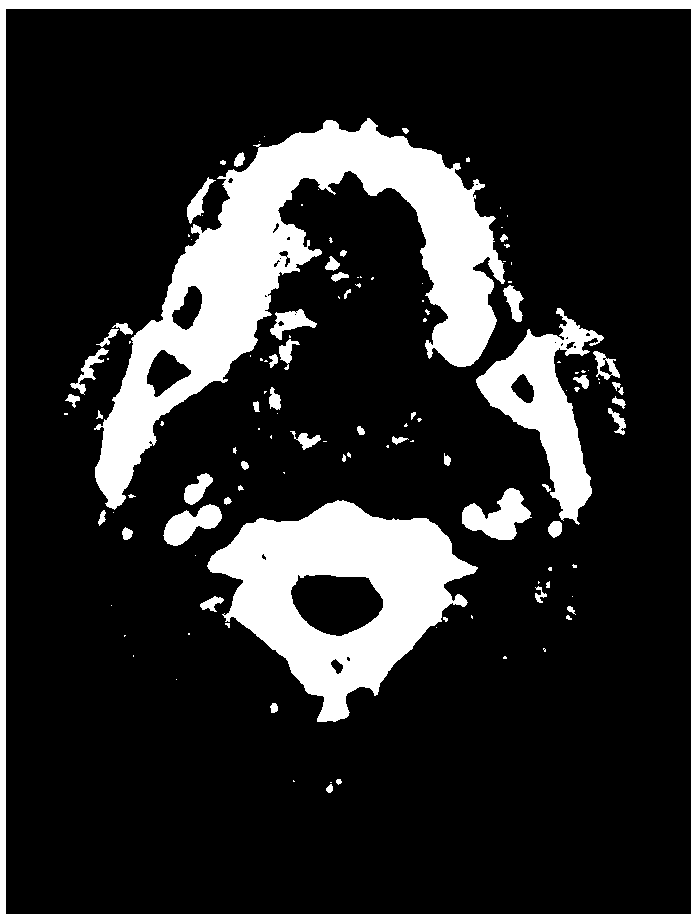Methods for preparing cutting guide plates and determining cut soft tissue substituting flap volume by using digital space reconstruction and 3D printing technology
A 3D printing and spatial reconstruction technology, which is applied in the field of medical treatment, can solve the problems of high personal requirements, insufficient space, surface skin collapse, etc.
- Summary
- Abstract
- Description
- Claims
- Application Information
AI Technical Summary
Problems solved by technology
Method used
Image
Examples
Embodiment 1
[0064] Patient Lu **, male, 34 years old.
[0065] The right tongue ulcer appeared more than 2 months ago, and she went to the local hospital for treatment, considering tongue ulcer and anti-inflammatory treatment. In the past one month, the mass has increased significantly, and the pain has increased.
[0066] Biopsy: "Tongue" consistent with well-differentiated squamous cell carcinoma.
[0067] Examination: The right tongue mass was about 4cm in size, ulcerated, with limited tongue movement, and multiple enlarged lymph nodes in the right upper neck.
[0068] Diagnosis: Malignant tumor of the tongue
[0069] Such as Figure 1-4 As shown, the surgery includes the following steps:
[0070] 1) Obtain the patient's thin-slice CT data (thickness 0.2mm), convert it into DICOM data format and import it into the 6D dental implant design software (6D-DENTAL Tech Co, Ltd, China) to reconstruct the soft tissue model shape and tumor shape of the patient area, Obtain editable .stl fo...
Embodiment 2
[0078] Patient Cai**, male, 58 years old.
[0079] 2016.5 Oral cavity: squamous cell carcinoma of the floor of the mouth (moderately differentiated). Esophagus: Poorly differentiated (squamous) carcinoma of the esophagus 29-31cm from the incisors (esophagus).
[0080] 2016-8-10 "1. Extensive excision of the malignant mass on the floor of the mouth; 2. Partial resection of the malignant mass of the tongue; 3. Neck dissection (bilateral); 4. Tracheotomy; 5. Mandible Partial amputation (titanium plate reconstruction); 6. Right pectoralis major muscle reconstruction; 7. Mouth floor reconstruction".
[0081] Postoperative pathology: 1. (Floor of mouth) high-moderately poorly differentiated squamous cell carcinoma (tumor size 4.5×3.5×2.7cm), infiltrating into submucosal and striated muscle tissue, and invading salivary gland, mandible and nerve tissue. 2. Chronic inflammation of lymph nodes in 10 (left neck II, III) and 23 (right neck), see also some submandibular gland tissues. ...
Embodiment 3
[0096] The difference between this embodiment and Embodiment 1 is that the three-dimensional model is first printed as a curved surface physical model, which specifically includes the following steps:
[0097] 1) Obtain thin-slice (0.2mm) CT data of the patient through CT scanning, then convert it into DICOM data format and import it into the 6D dental implant design software (6D-DENTAL Tech Co, Ltd, China) to reconstruct the soft tissue model shape and Tumor morphology, obtain editable model data in .stl format.
[0098] 2) Combining magics design software (Materialise Ltd, The Kingdom Of Belgium) and Geomagice Studio design software (Geomagice, USA) to edit the 3D model, plan the repair plan, and consider the safe range of tumor resection to demarcate the lesion tissue resection boundary and determine the resection lesion area; then the repaired surface is extracted by the GeomagiceStudio design software, calculated and converted into a Nurbs surface, and saved as data in a ...
PUM
 Login to View More
Login to View More Abstract
Description
Claims
Application Information
 Login to View More
Login to View More - R&D
- Intellectual Property
- Life Sciences
- Materials
- Tech Scout
- Unparalleled Data Quality
- Higher Quality Content
- 60% Fewer Hallucinations
Browse by: Latest US Patents, China's latest patents, Technical Efficacy Thesaurus, Application Domain, Technology Topic, Popular Technical Reports.
© 2025 PatSnap. All rights reserved.Legal|Privacy policy|Modern Slavery Act Transparency Statement|Sitemap|About US| Contact US: help@patsnap.com



